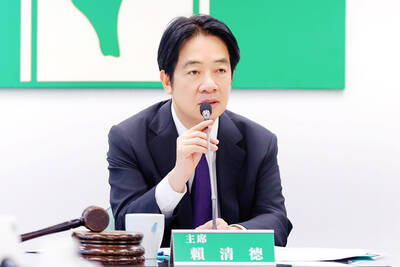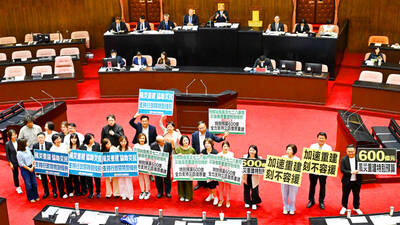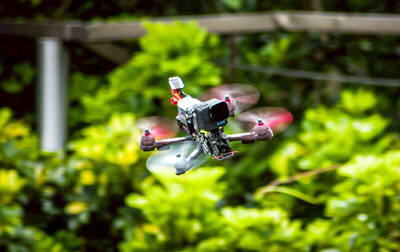Japan's electronic appliance makers have been competing with new products that are both economical and environmentally friendly in the mature washing-machine market.
Japanese electronic manufacturers usually sell a total of about 3.8 million washing machines in Japan each year. Japanese appliance makers, which have already satisfied consumers with powerful cleaning capability, have been putting forth efforts to develop products that are different from competitors, the analysts said.
They said Japanese appliance makers focus more on the domestic washing machine market as they do not make good profits in overseas markets.
Unlike other manufacturers such as Japanese auto makers, which have a strong presence in other Asian markets, Chinese and South Korean makers are more competitive in those markets thanks to the improvements in technology and the cheaper prices of washing machines.
"In order to attract Japanese consumers who only buy new washing machine every eight years or so, each Japanese appliance makers tries to invent new products that are different from others," said a spokesman at Sanyo Electric Co.
According to the Japanese government, the average years of using washing machines among Japanese consumers is 8.5 years. It also said the ownership rate of washing machines in Japan stood at 99.3 percent last year.
Sanyo released its new soapless washing machine on Aug. 1. Since its launch, the company has sold about 30,000 units despite the high price of ?128,000 yen (US$1,06).
"Despite the dampening of consumer sentiment amid the recession, our sales for the new product is 30 percent more than our past new washing machine product sales," said the Sanyo official.
Instead of soap, Sanyo's new washing machine cleans the dirt by stream of bubbles created by ultrasonic waves. It is then broken down by electrolysed water produced by two electrodes.
Sanyo's new machine uses activated oxygen and hypochlorous acid, generated by electrodes on the side of the wash basin to dissolve dirt particles.
This prevents the dirt from reattaching to clothes, while simultaneously sterilizing the laundry, Sanyo said.
The company said its new products saves ?32 per wash load for detergent costs alone. Over a years time this represents a potential savings of about ?12,000 (US$100).
Sanyo says the machine should help people with skin problems triggered by laundry detergents, such as babies, who are often allergic to soap.
The Sanyo official said Japanese consumers, who are obsessed with cleaning, wash towels and underwear which they use at night every morning.
"Those are not very dirty but many Japanese consumers wash them anyway. The product was developed because many Japanese who prefer to avoid using detergent when washing such items as towels and dyed fabrics," the Sanyo official said.
The company spent five years developing of the new product. Sanyo, which places fourth in the fully automatic washing machine market with a share of some 10 percent, was keen for new models with features not offered by its rivals.
Sharp Corp. also said it will launch what it claims to be the world's first washing machine on November 1 that uses "supersonic vacuum bubbles" to remove tough stains without laundry detergent.
Sharp said the bubble jets are 100 times more powerful than the cleaning capacity of its previous model, making it possible to save about 30 percent of laundry detergents. It will be priced at ?125,000.
Matsushita Electric Industrial Co released this summer new top-loading washing machine that has a built-in dryer. The new washer-dryer has a suggested retail prices of ?165,000. Hitachi Ltd also launched in September a top-loading washing machine with a built-in dryer.
Many Japanese households do not have a dryer because of a space shortage. Matsushita said the new machines target single women living on their own who may feel uncomfortable hanging their laundry outside, as well as elderly couples who may find it burdensome to lug their laundry around.
Japanese appliance makers cannot ignore such people because of the rising numbers of unmarried Japanese women, and the increasing population of elderly in Japan.

President William Lai (賴清德) yesterday criticized the nuclear energy referendum scheduled for Saturday next week, saying that holding the plebiscite before the government can conduct safety evaluations is a denial of the public’s right to make informed decisions. Lai, who is also the chairman of the Democratic Progressive Party (DPP), made the comments at the party’s Central Standing Committee meeting at its headquarters in Taipei. ‘NO’ “I will go to the ballot box on Saturday next week to cast a ‘no’ vote, as we all should do,” he said as he called on the public to reject the proposition to reactivate the decommissioned

US President Donald Trump on Friday said that Chinese President Xi Jinping (習近平) told him China would not invade Taiwan while Trump is in office. Trump made the remarks in an interview with Fox News, ahead of talks with Russian President Vladimir Putin over Moscow’s invasion of Ukraine. “I will tell you, you know, you have a very similar thing with President Xi of China and Taiwan, but I don’t believe there’s any way it’s going to happen as long as I’m here. We’ll see,” Trump said during an interview on Fox News’ Special Report. “He told me: ‘I will never do

The Legislative Yuan yesterday approved an aid and recovery package authorizing the government to allocate up to NT$60 billion (US$1.99 billion) for regions hit by Typhoon Danas and subsequent torrential rains last month. Proposed by the Executive Yuan on Aug. 7, the bill was passed swiftly after ruling and opposition lawmakers reached a consensus in inter-party talks on relief funding and assistance for disaster-stricken areas. The package increases the government’s spending cap from the originally proposed NT$56 billion to NT$60 billion, earmarked for repairing and rebuilding infrastructure, electricity systems, telecommunications and cable TV networks, cultural heritage sites and other public facilities.

FLEXIBLE FORCE: Only about 10 percent of small drones reach their target, an expert said, which is why it is important to make it easier to procure large numbers of drones The military is planning to recategorize military drones as “consumables/munitions,” rather than as aircraft, to speed up the procurement process, the army said yesterday. The Army Command Headquarters said the decision was made because drones, like munitions, need to be rapidly replaced, and thus should be categorized as consumables/munitions “to meet the army’s practical needs.” The headquarters’ confirmation came after the Chinese-language Liberty Times (the Taipei Times’ sister paper) early yesterday reported that the army was about to make the classification change based on the example of the US, which is Taiwan’s biggest arms provider. US Secretary of Defense Pete Hegseth announced a